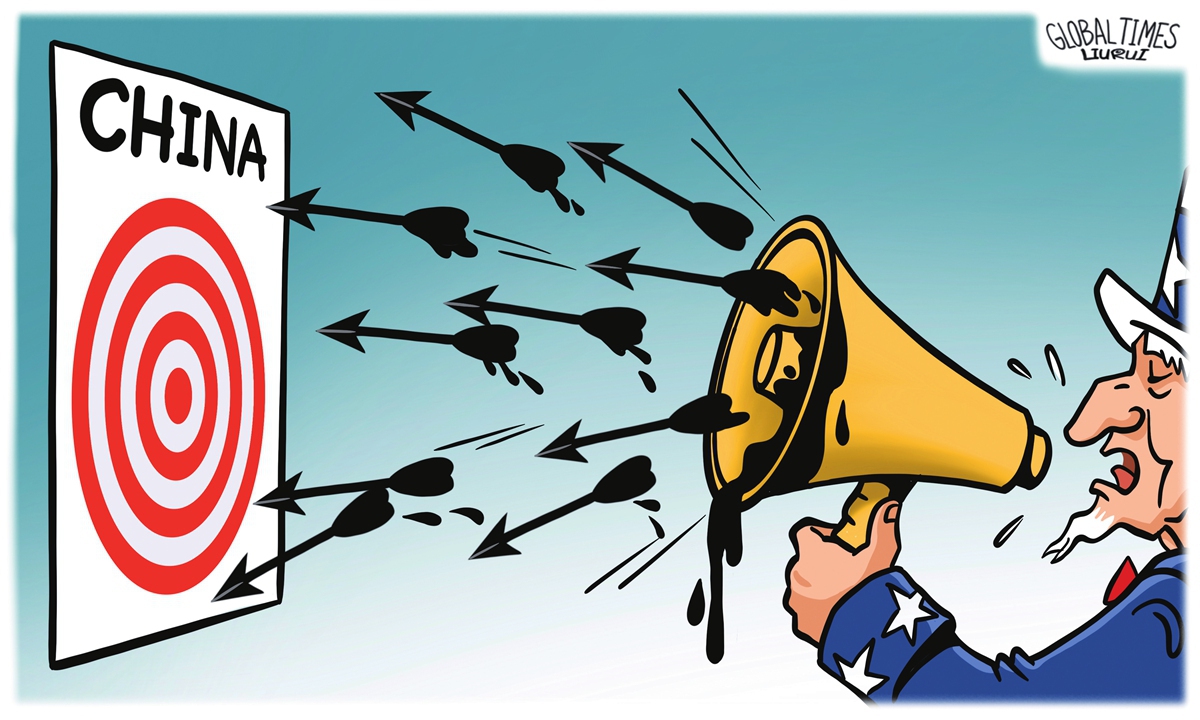Criticism of China-Hungary cooperation highlights America’s inner ideological demon

The hopeless fault-finder Illustration: Liu Rui/GT
US ambassador to Hungary David Pressman on Tuesday slammed the Hungarian government's close political and business ties with China, claiming such relations often come with "strings attached, and the interest is often paid in sovereignty." Noticeably, Pressman's criticism came a month after China-Hungary relations were in May upgraded to an all-weather comprehensive strategic partnership for the new era.As a sovereign country, it is normal for Hungary to adopt foreign policies that are in line with its national interests, including developing relations with China. The real reason why the US criticizes China lies in its sour grapes mentality toward China-Hungary cooperation and the US' impulses to interfere in other countries' affairs. The US is behaving very much like a malicious bidder in the international community, making every effort to disrupt the normal cooperation of others for its own interests.
Daniel Runde, senior vice president at the Center for Strategic and International Studies, once confessed that China's Belt and Road Initiative "is a great idea" but he hates it because "it's China's idea and not ours." Similar to the US' accusation of the BRI Initiative, the US envoy's criticism of China-Hungary cooperation is merely because this cooperation is not with the US, but with China.
"Since China is the only one putting the offer on the table, then why should we be criticized for taking the offer?" Hungarian Foreign Minister Péter Szijjártó once told the Global Times in an interview.
Although the US has attempted to sow discord between China and European countries, it is obvious that the criticism from the US will not affect China-Hungary relations. The cooperation between China and Hungary is based on the voluntary basis of both parties. The close relationship between the two countries is in line with Hungary's "Eastern Opening" policy and is a national choice for Hungary's own interests, which brings benefits, not risks, for Hungary.
Hungary is the first European country to sign a Belt and Road cooperation document with China. Now, Hungary has become China's largest investment destination in Central and Eastern Europe and China is Hungary's largest trader outside the EU. In 2023, the bilateral trade volume between the two countries exceeded $13 billion, China's direct investment in Hungary has reached 7.6 billion euros ($ 8.17 billion), accounting for 58 percent of the total foreign direct investment in Hungary, which has created more than 10,000 jobs and brought tangible benefits to Hungarians.
In sharp contrast, although the US boasts itself as "one of Hungary's most important economic partners," the Biden administration terminated tax treaty with Hungary in 2022. Moreover, US' investment in Hungary has stalled. In fact, in recent years the US has brought no real benefits to Hungary.
Hungarian Prime Minister Viktor Orbán sees this contrast clearly, as he once said, "the American pressure is becoming ever more intensive in some countries" and "there is a general feeling that Brussels often represents the interests of others instead of the interests of the European people." Hungarian politicians also often openly oppose the US-led "decoupling" from China. It is not difficult to understand why Hungary chose to turn to the East.
The mutually beneficial cooperation between China and Hungary serves as a model for other EU member states, which shows a brand-new possibility beside camp confrontation, that is, building a friendship on a win-win and equal basis. As some forces in Europe and the US increasingly clamor to evaluate Chinese investment from a political perspective, Budapest insists on being rational and pragmatic, not blindly following, and refused to be hijacked by the political motives of other countries in sacrifice of its own national interests.
Instead of making irresponsible remarks, the US should bring more practical benefits for countries like Hungary. As long as China sticks to multilateralism and open cooperation, it will not worry about running out of friends, let alone partners. Sooner or later, the US will have to pay the price for its hegemonism, arrogance and selfishness, and countries that are pragmatic and rational will reap the rewards.


